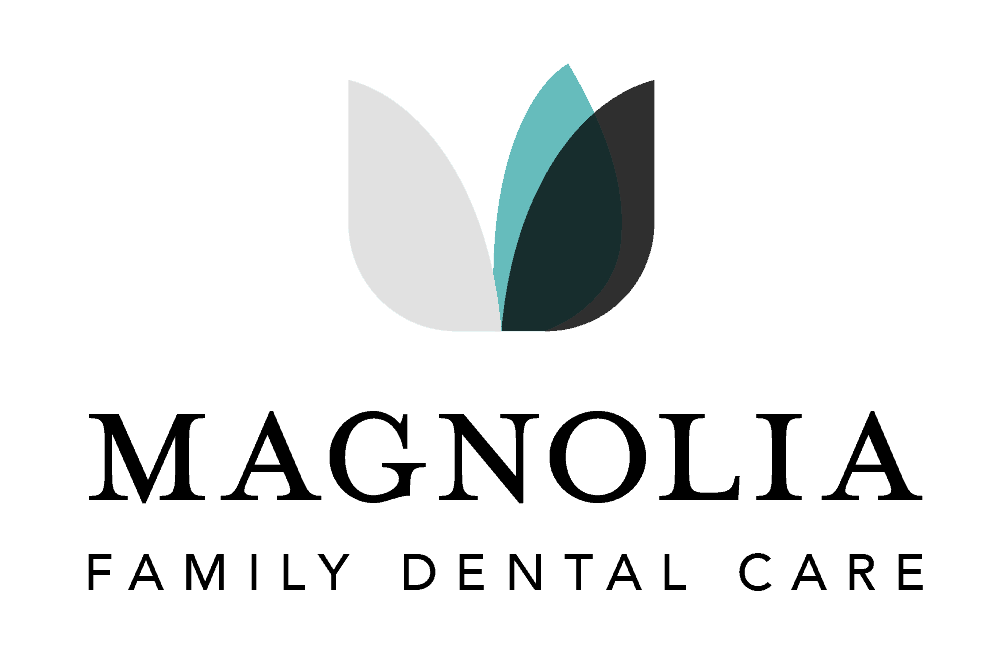Here at Magnolia Family Dental Care, we care about the overall health of your mouth and we are not only talking about cavities! You will notice that when you come in for your cleanings that we take some time to measure your gums. What we’re actually measuring is the health of your gum tissue, those little numbers can tell us a lot!

South Tulsa Periodontal Therapy/Deep Cleanings
What does it mean when I’m told that I have Periodontal Disease?
Periodontal disease (also known as gum disease) is infection and inflammation in gums that can lead to a loss of bone resulting in tooth loss if left untreated. There are different stages of gum disease starting with gingivitis and ending with severe periodontal disease. Periodontal disease will not heal itself; if left untreated teeth can become loose and actually become indicated for extraction.
What causes periodontal disease?
Bacteria found in plaque causes irritation to the gums. If the plaque is not properly cleaned off of the patient’s teeth, it can calcify causing a buildup called tartar or calculus. This calculus perpetuates more plaque buildup which can lead to chronic inflammation, bleeding, and infection that can destroy gums and bones that make up the tooth socket. This calculus is typically under the gums and can only be cleaned professionally by a trained dentist or hygienist.
How can my dentist tell if my periodontal disease is severe?
In order to diagnose the severity of periodontal disease an instrument called a periodontal probe is used to measure the depth of the spaces between teeth and gums; a healthy depth is three millimeters or less. As periodontal disease progresses and the bone levels drop the numbers go up starting at four millimeters or more depending on the amount of bone loss. If there’s bleeding with probing we know that there’s inflammation which is a good indicator of the presence of bacteria. The last tool that we use for diagnosis is the X-ray which can be used to visualize the actual loss of bone as well as any tartar that has built up on the teeth.
Ok, so I have periodontal disease, now what?
Treatment of periodontal disease depends on the severity of the disease process. Typically this can be treated at the dentist’s office with non-surgical treatment. This type of cleaning is called scaling and root planing or “SRP” and is sometimes referred to as a deep cleaning. Typically the patient is numbed for this procedure in order to reduce discomfort. The teeth are scaled, removing the hard buildup and any plaque followed by root planing which smooths the root which makes it difficult for plaque to adhere. Once scaling and root planing is completed, a follow up appointment will be scheduled within a few weeks to examine the healing. After treatment the patient is typically kept on a more frequent recall in order to maintain the health of the gums.
Can periodontal disease be prevented?
Yes! The most important aspect of preventing periodontal disease is home care. Regular brushing and flossing act as a first line of defense for gum disease. Regular dental checkups and cleanings are incredibly important as well in order to catch any form of the disease process early to prevent it from getting worse. In some cases, even if everything is done right, there are other factors that come into play with periodontal disease. Systemic diseases such as diabetes, HIV infections and others can inhibit the body’s ability to heal itself quickly which can lead to a quicker progression of gum disease. Smoking also plays a big role in the health of patient’s periodontal health.
You should see a dentist if you notice any of the following warning signs:
- bleeding with brushing and/or flossing
- red, swollen or tender gums
- pus between your teeth when your gums are pressed
- persistent bad breath or taste
- permanent teeth that have become loose
- changes in your bite
- exposed tooth roots/recession
- increased sensitivity to hot and cold things
